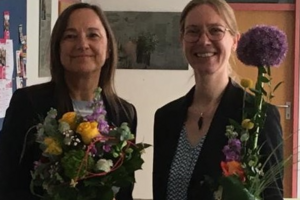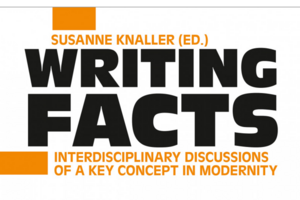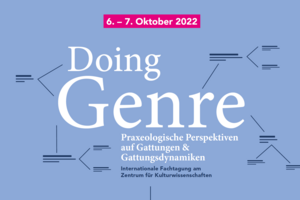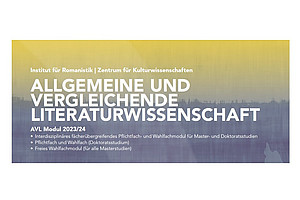ICLA World Congress 2016 Vienna
LANGUAGES OF THEORY
Organized by: DGAVL and SGAVL (Joachim Harst, Susanne Knaller, Christian Moser, Angela Oster, Linda Simonis, Markus Winkler)
22 - 23 July 2016
Marietta Blau Saal / HS 7 / Audimax
In the past, the philological study of texts and their linguistic and stylistic properties on the one hand and the issues of theory on the other hand have often been regarded as completely distinct and separate concerns, sometimes even opposed to each other. At a closer look, however, it is clear that the simple opposition of philological and theoretical aims does not hold. In recent times numerous comparative and other literary studies have successfully combined philological and theoretical approaches and thereby given proof of their compatibility and possible reconciliation. But the interrelation between philology's concern with the manifold languages and idioms of literary texts and the engagements of theory reaches further. Philological matters - this is the guiding idea of our panel - are not just a supplement or addition to theory. Far from being external to theoretical reflection, philological analysis is a genuine element and driving power of the making of theory. Thus, philological and linguistic inquiries are often at the heart of theoretical investigations. Michel Foucault, for example, in his later lectures held at the Collège de France, takes a great interest in the origins and historical developments of certain ancient Greek terms such as aletheia and parrhesia which are gradually developed and exposed as key notions of what turns out to be a new way of accounting for the subject's engagement with truth and its relation to power. Similarly Giorgio Agamben, drawing on the seminal works of Émile Benveniste and Georges Dumézil, systematically resorts to etymological reflections and to comparative analyses of the history of words in the indo-european language family in order to deploy the meanings and functions of certain core concepts, as for example the term sacer which means both 'holy' as well as 'banned' or 'cursed'. As a further example of the linguistic or philological interest of theory we could point out Bruno Latour's recurrent preoccupations with rhetoric and the rhetorical tradition, e.g. when he takes up and problematizes the old distinction between truth as a conviction created by language and truth as evidence established by demonstration. Rhetoric, Latour argues, is not only a fundamental device of the arts and humanities, it is also secretly at work in the scientific pursuit of emprirical knowledge. As a further candidate for the linguistic/philological commitment of theory we can evoke the work of Jacques Derrida, in particular his concern with language in its written form as graphe or scripture as opposed to its vocal form as speech. This list of examples is, of course, incomplete and demands to be extended and complemented.
Our panel welcomes papers focusing on the philological or linguistic implications and preoccupations of current literary and philosophical theory. We would like to encourage studies examining cases of convergence between literary theory and philology or philological investigation. Where does the philological problem of the many languages enter into theoretical reflection? And in how far does it turn out to be an integral part of the theoretical enterprise? Our panel thus addresses the problem of the "many languages" through the angle of the "languages of theory". By exploring the "languages of theory" (or linguistic interventions of theory) the panel attempts to draw out the implications of this linguistic impulse and to gain a fuller understanding of the intricate and complex relation between theory and philology.
Friday, July 22nd // Saturday, July 23rd
17281 - The Languages of Theory
Room: Marietta-Blau-Saal / Hs 7 / Audimax
9:00 AM - Philological Understanding in the Era after Theory Geisenhanslüke, Achim (Universität Frankfurt a.M., Frankfurt a.M., Germany)
9:45 AM - Philology with a Facelift? The Case of Roland Barthes¿ S/Z Strätling, Regine (Universität Bonn, Bonn, Germany)
11:00 AM - Genealogy and Philology Winkler, Markus (Université de Genève, Genève, Switzerland)
11:30 AM - Acts of swearing. The language of the oath and its investigation by Agamben and Foucault Simonis, Linda (Ruhr Universität Bochum, Bochum, Germany)
2:00 PM - Deleuze's Le pli and baroque language Schumm, Johanna (LMU München, München, Germany)
2:30 PM - Auratic Theory: Benjamin Zanetti, Sandro (University of Zurich, Zurich, Switzerland)
4:00 PM - Working at the net. Bruno Latour's foundations of discursivity Eggers, Michael (Universität zu Köln, Köln, Germany)
4:30 PM - Variants of Agency: Observations on Myth, Fiction and Narrative in Latour's (Social) Theory Kramer, Kirsten (Universität Bielefeld, Bielefeld, Germany)
6:00 PM - Philological Paperwork. The Question of Theory Within a Praxeological Perspective on Literary Scholarship Pethes, Nicolas (Universität zu Köln, Köln, Germany)
Saturday, July 23rd
Room: Hs 7
9:00 AM - 'Voice' or 'Speech'? Discourses of Migration and Jacques Rancière's Reflections on Human Rights, Politics and Language Schödel, Kathrin (University of Malta, Msida, Malta)
9:30 AM - Middle Voice and the Rhetoric of Crisis in present-day Europe Boletsi, Maria (University of Leiden, Leiden, Netherlands)
11:00 AM - Cultural History and Linguistic Representation of the Bed. Encountering the Philological Foundations of Culture Theory in Quotidian Culture Brandes, Peter (Northwestern University, Department of German, Evanston, USA)
11:30 AM - Languages in Theories on the Origin of Culture, 18th century Moser, Christian (Universität Bonn, Bonn, Germany)
2:00 PM - Stephen Greenblatt and the Making of a New Philology of Culture Simonis, Annette (Universität Gießen, Gießen, Germany)
2:30 PM - The Work of Fernando Ortiz and his Impact on Europe Reichart, Dagmar (University of Groningen, Groningen, Netherlands)
4:00 PM - Novel Poetics of the Self: Richardson's Pamela Lüdeke, Roger (Universität Düsseldorf, Düsseldorf, Germany)
4:30 PM - Borges: Poetry as Philology Harst, Joachim (Uni Bonn, 53113, Germany)
Room: Audimax
6:00 PM - Theory, World Literature and the Politics of Translation Damrosch, David (Harvard University, Cambridge MA, USA); Emily Apter




